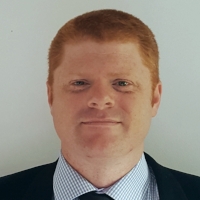Meet the scientists
Join scientists from across industry and listen to some cutting edge research!
Jennifer Elliott
SENIOR BUSINESS DEVELOPMENT MANAGER AT SGI-DNA
Vibrio natriegens as a fast-growing host for molecular biology
A rapidly growing bacterial host would be desirable for a range of routine applications in molecular biology and biotechnology. The bacterium Vibrio natriegens has the fastest growth rate of any known organism, with a reported doubling time of <10 min. We report the development of genetic tools and methods to engineer V. natriegens and demonstrate the advantages of using these engineered strains in common biotech processes.
Isaac houston
QIAGEN LIFE SCIENCE SPECIALIST
QIAseq Technologies for Metagenomics and Microbiome NGS library prep
In this presentation, learn about the innovative technologies that form the basis of QIAGEN’s portfolio of QIAseq library prep solutions for metagenomics and microbiome sequencing. Whether your research starts from single microbial cells, 16s rRNA PCR amplicons, or gDNA for whole genome analysis, QIAseq technologies offer tips and tricks for capturing the genomic diversity of your samples in the most unbiased, streamlined way possible.
Aron Jaffe
GROUP LEADER, TISSUE REPAIR & MICROBIOME AT NOVARTIS INSTITUTES FOR BIOMEDICAL RESEARCH
Mechanisms regulating lineage decisions in the airway
The functions performed by epithelial tissues are dictated by the types, abundance, and distribution of differentiated cells generated by stem/progenitor cells. In the conducting airway, the basal stem cell generates two major differentiated cell types that act coordinately to perform mucociliary clearance to rid the airway of pathogens: secretory cells, which produce mucins that trap pathogens, and multiciliated cells, which beat to push the mucus up and out of the airways. An imbalance in the abundance of these two differentiated cell types, leading to goblet cell metaplasia and increased mucus production, is seen in a variety of airway diseases, such as asthma, chronic obstructive pulmonary disease (COPD), and cystic fibrosis (CF). In this presentation I will discuss our work investigating the regulation of cell fate decisions in the airway.
ania wronski
FIELD APPLICATION SCIENTIST IN DRUG DISCOVERY AND STEM CELLS AT THERMO FISHER SCIENTIFIC
Evolving iPSCs for the next challenge: gene editing & automation
Discovery and utilization of induced pluripotent stem cells (iPSCs) was heralded as the missing link to enable us to finally model and cure diseases. Now with the ability to engineer the genome with precision, iPSC can finally be applied to basic research as well as drug discovery. In this seminar, we will discuss some of the challenges facing stem cell researchers in applying next generation techniques such as genome editing for disease modeling and drug discovery and offer potential solutions.



